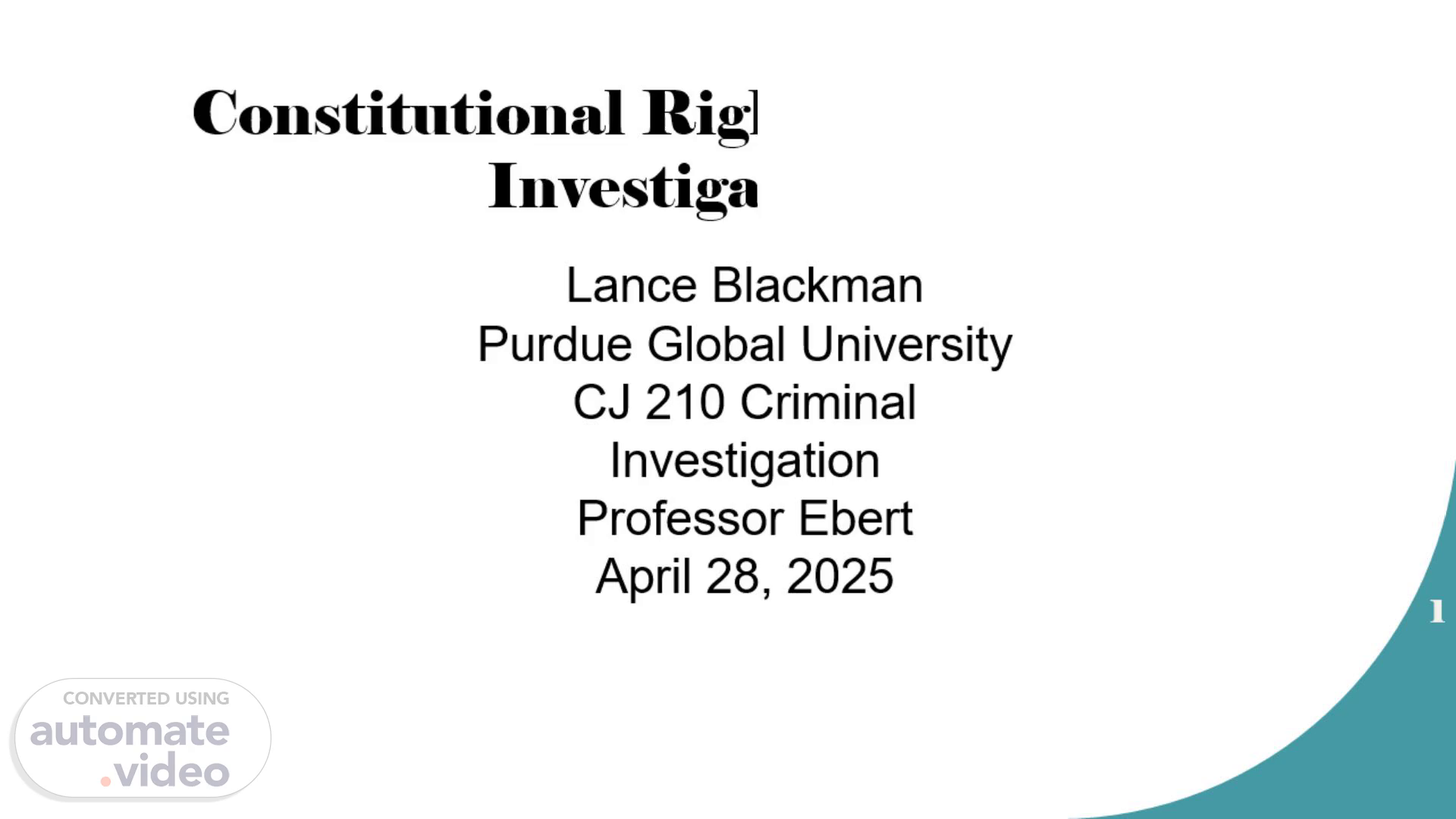Scene 1 (0s)
Constitutional Rights in Criminal Investigations.
Scene 2 (9s)
[Audio] Constitutional Rights in Criminal Investigations: The Fourth Amendment provides crucial protection against unreasonable searches and seizures. It requires that law enforcement obtain a warrant based on probable cause before searching you, your home, or your possessions. This amendment balances public safety with personal privacy by establishing that citizens have a reasonable expectation of privacy that the government cannot intrude upon without proper justification. The Fifth Amendment contains several vital protections, most notably the privilege against self-incrimination. Miranda warnings include the famous phrase "you have the right to remain silent." This protection ensures that the government bears the burden of proving guilt rather than forcing individuals to incriminate themselves. It also prohibits double jeopardy and guarantees due process. The Sixth Amendment safeguards the right to a fair trial through multiple guarantees: the right to legal counsel regardless of your ability to pay, the right to confront witnesses against you, the right to call witnesses in your defense, the right to a speedy trial to prevent indefinite detention, and the right to be tried by an impartial jury of your peers. These protections work together to ensure that criminal proceedings are conducted fairly and with respect for the accused's rights..
Scene 3 (1m 32s)
[Audio] Consequences of Constitutional Rights Violations: When constitutional rights are violated, significant legal remedies exist. The primary remedy is the exclusionary rule, which prohibits prosecutors from using illegally obtained evidence in court. This creates a strong incentive for law enforcement to follow proper procedures. The "fruit of the poisonous tree" doctrine extends this protection - evidence discovered due to the initial illegal search or seizure is also inadmissible (Osterburg et al., 2019). For example, if an unlawful search reveals a storage unit key, evidence found in that unit also becomes inadmissible. Severe violations can lead to case dismissal, preserving the justice system's integrity. Individuals whose rights were violated may pursue civil remedies through Section 1983 lawsuits, potentially resulting in monetary damages against the police department. In extreme cases, systematic violations may trigger "pattern or practice" investigations by the Department of Justice, resulting in consent decrees that mandate departmental reforms and federal oversight to ensure constitutional policing..
Scene 4 (2m 48s)
[Audio] Police can avoid rights violations through proper training and clear rules. Using body cameras, getting warrants when needed, and reading Miranda rights help protect people's rights. If an officer lies in court, the results can be very serious. The case might be thrown out or a conviction might be overturned later. The officer could be charged with a crime themselves for lying under oath. Once an officer is caught lying, it's hard for juries to believe anything else they say. This can ruin cases and can even lead to lawsuits against the department. A single police officer's ineffective presentation in the courtroom can result in the acquittal of a defendant, no matter the amount of solid evidence they may have collected ( Brocklin, 2025)..
Scene 5 (3m 32s)
References. Osterburg, J. W., Ward, R. H., & Miller, L. S. (2019). Criminal Investigation (8th ed.). Taylor & Francis. https://purdueuniversityglobal.vitalsource.com/books/9780429535338 Brocklin, V. (2025). Avoid costly mistakes: Police officers’ guide to strong courtroom testimony. Police 1. https://www.police1.com/legal/articles/are-you-ready-to-testify-77Nc9HVIipxCwteZ/.
